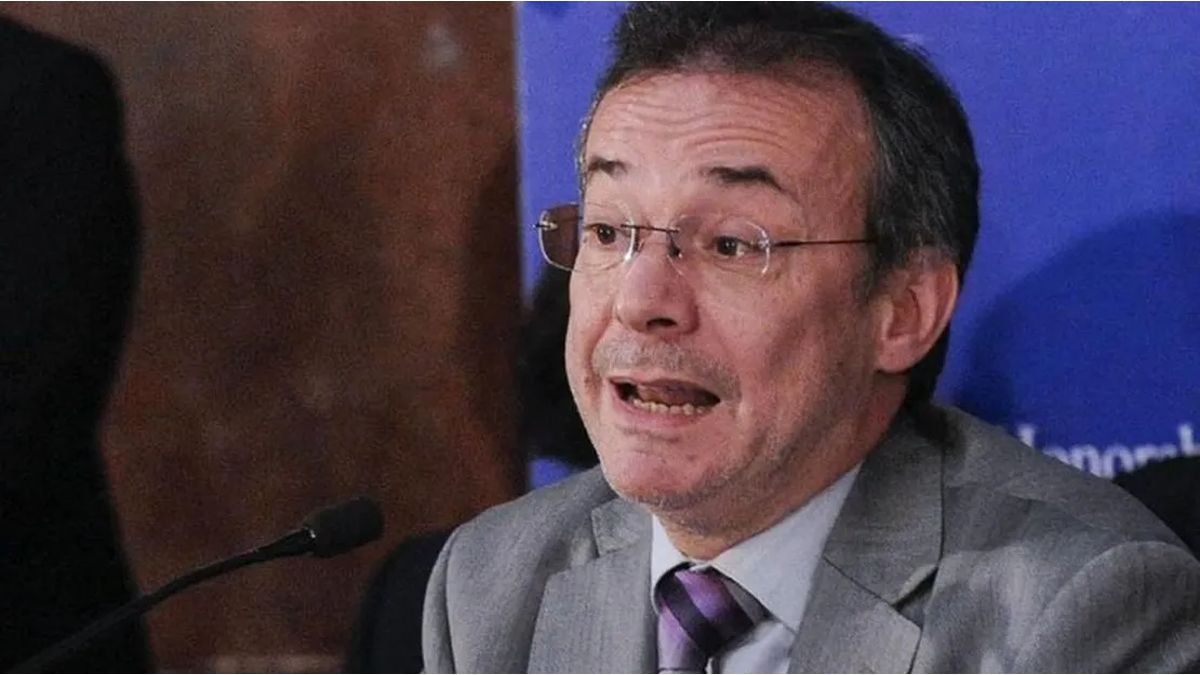The chief economist of the Latin American Economic Research Foundation (FIEL)Daniel Artana, assured this Tuesday that the Government reduced the quality of life of the population more than would have been necessary to attack the problem of inflation.
In a talk with investors organized by the Cohen Argentina brokerage company, Artana estimated that this year’s GDP will fall between 4% and 5% and that the Inflation will be around 6% monthly by mid-year.
“I’m not saying this is right. “It seems to me that what they have done with the blender has been quite wild”he stated, when speaking about the effect of inflation on retirement and pension expenditure items.
The FIEL economist maintained, among other issues, that it will be important for the future stabilization program to eliminate the fiscal deficit and that therefore The central issue is pension spending.
“The economy is over-adjusted in terms of the population’s standard of living. There has been a monumental drop in salaries and pensions in real terms that were not necessary for Argentina’s external accounts,” he explained.
In this sense, the professional warned that “In the provinces, 60% of primary spending is salaries, and there the blender is more complex to apply because there is a risk of strikes”. On the other hand, he indicated that “retirees protest much less than provincial public employees and that is why The blender on retirements holds longer than on public employees.”
“Obviously there are social restrictions. It is desirable that part of what this blender obtained on pensions be returned. It should motivate the governors to agree with Javier Milei because I don’t know how they are going to pay the half bonus in the middle of the year if they do not have a recomposition of income”he warned.
In that sense, the chief economist of FIEL specified that with the current pension formula, from the moment inflation drops, pension spending is once again at 7 points of GDP as in previous years. For example, he explained that the alternative formulas proposed by the opposition to update pension assets represent an intermediate level of spending between 5 and 7 points of GDP.
chainsaw pesos cut adjustment public spending.jpg
For Artana, “there has been a monumental drop in salaries and retirements in real terms.”
For FIEL, inflation will be 6% monthly in the middle of the year
According to Artana, FIEL anticipates “a more marked fall in inflation than the consensus” of economists indicates, since they are projecting “an inflation of 175% to 177% annually.” But consider that the Government has changed priorities in recent weeks in relation to the policy of rebalancing relative prices that affects economic subsidies.
When speaking on the issue of subsidies, he said that “The gas issue remains to be resolved, there is still some light and some transportationbut the Government, with politics in the rear, “It would seem that the objective of reducing inflation has become more urgent than it was a week ago.”
Therefore, he considered that There will be “an attempt to lower the inflation rate more quickly, which will land on the order of 6% per month.” “I see it as feasible for the middle of the year, but with the difficulty of advancing the stabilization plan,” he indicated because there will be pending subsidies to cut, which imply new rate adjustments with future inflationary increases.
Doubts about international reserves
In another aspect, Artana anticipated that “The Government is going to exceed the objective with the IMF, which was to close the year with reserves of around negative US$1.1 billion”. “They are going to have that between this month and next month even before the thick harvest is liquidated,” he remarked.
However, he relativized the achievement by pointing out that ““This has been achieved by making payments abroad.” since “although an attempt was made to fix the stock of commercial debt with the BOPREAL, a new debt has been generated.”
“There will be normal payment for imports in May. We estimate that the commercial debt in May will be at US$10,000 to US$12,000 million. To the extent that the stocks want to be lifted, we must discuss this and the payment of dividends abroad, which has been almost zero,” he anticipated.
The IMF is not going to lend dollars to dollarize
In relation to a possible new program with the International Monetary Fund (IMF) for US$15 billion, He considered that if it comes to fruition, it will not be to apply a dollarization of the economy.
“In general andl The Fund is reluctant to use reserves to artificially maintain an exchange rateIn short, one uses the silver of the Fund to finance dollarization of Argentines who see a cheap exchange rate. But to have a kind of dirty float, that can be argued,” Indian.
Doubts to get out of the trap
The FIEL economist raised some doubts about the eventual exit of the stocks in the short term, because due to the lack of dollars the Government has generated a new commercial debt of importers, which if the restrictions are lifted could put pressure on the currencies of a way that would not be sustainable.
“The conditions to get out of the stocks are not to have a monetary overhang (surplus money), I think that has been resolved, and there is no need to have pending payments. Will there be BOPREAL for the debt generated by this Government? “They have to resolve these issues before discussing the opening of the stocks,” accurate.
Source: Ambito




